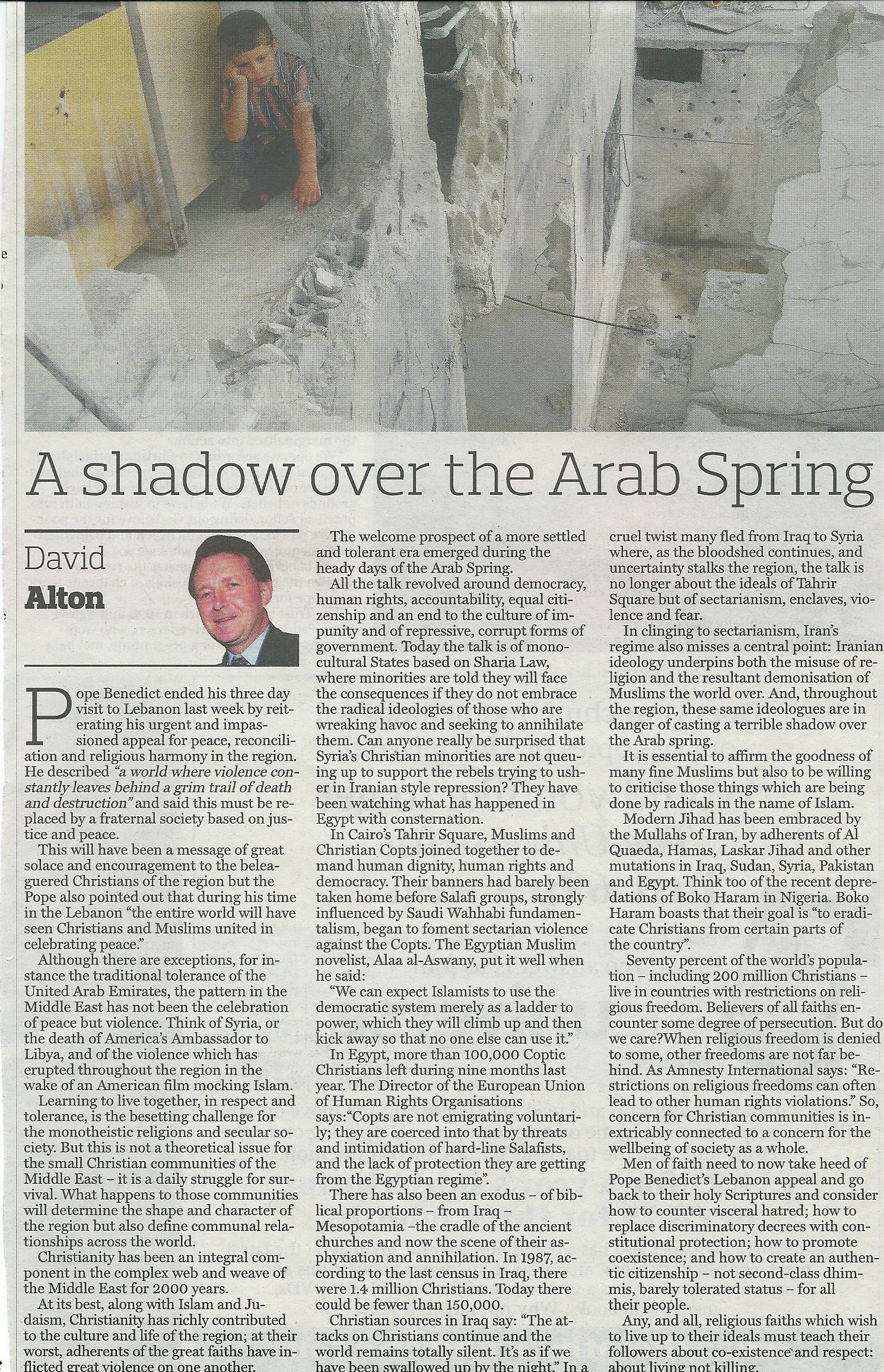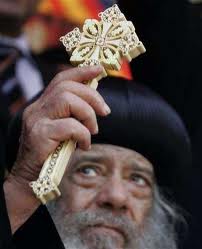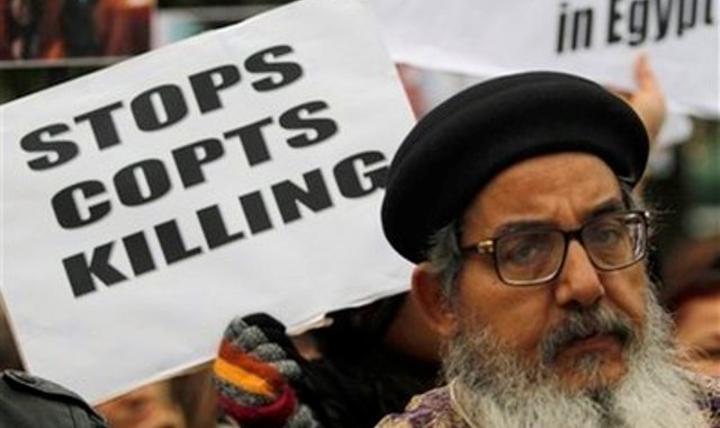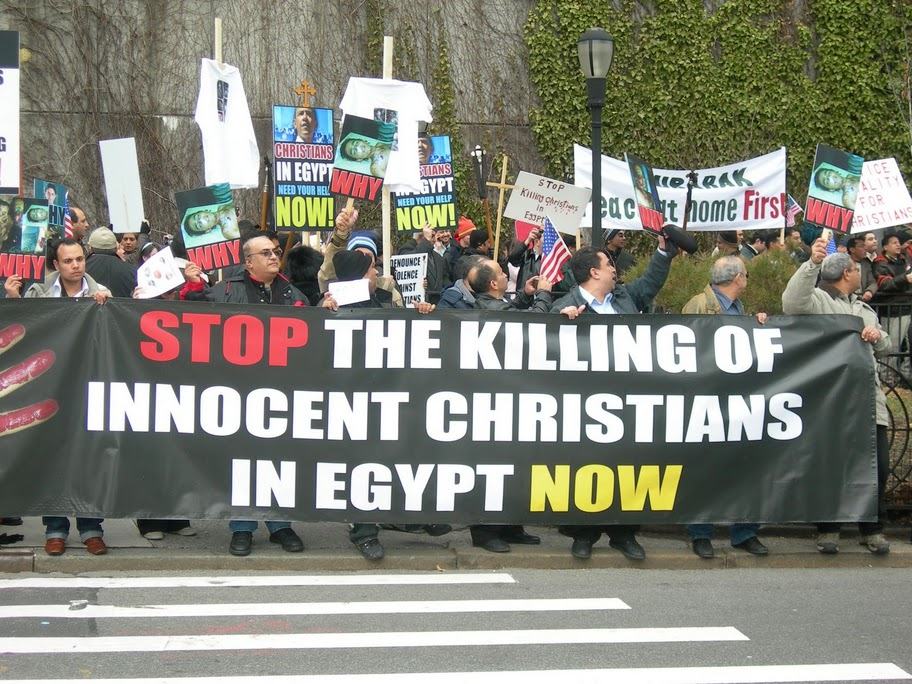


 One year after the Arab Spring many people are asking what difference the revolutions have made to the position of the region’s people.
One year after the Arab Spring many people are asking what difference the revolutions have made to the position of the region’s people.
The game of grandmother’s footsteps which has seen the toppling of dictators, and some tentative reform in countries like Morocco, is still being played out in Syria and Yemen and although it’s too soon to say how it will end, so far, the omens are not good.
Look at Egypt.
One Coptic Orthodox bishop says that although 10-15% of Egyptians are Copts, because of the first past the post system of elections, none were elected to the lower chamber of Parliament .
To provide a fig leaf, five Copts were subsequently appointed to the People’s Assembly.
After they swore their oaths, and took their seats, a Coptic woman MP asked to be put on a parliamentary committee.
However, another member stood up and objected that she couldn’t be appointed because firstly, she was a Copt and, secondly, she was a woman. This refutation went unchallenged. Nor did anyone challenge ad hoc oaths which were made on the spot by new MPs swearing to observe the constitution insofar as it is compliant with Sharia Law.
Many see this disturbing trend as an attempt to establish a pan North African Islamic caliphate – with all the consequences which this would involve for minorities such as Christian Copts and secular or non radical Muslims.
In the face of this, it is puzzling that many in our Foreign Office seem largely indifferent. At the memorial service which was held after the horrific killing of Christian worshipers in Alexandria, the Copts say that a Foreign Office official, who was present, remarked that his political masters are frightened to say anything for fear of making a bad situation worse. It’s hard to see how it could get much worse and silence rarely helped anyone.
In marked contrast, after the attacks on Catholics in Baghdad, President Sarkozy said publicly that France was showing solidarity with Middle East Christians and he arranged for 30 families to come to France where they received top level medical attention and rehabilitation.
Ask yourself the question – when there is next a vicious attack on Egypt’s Copts, will the Foreign Office be sending British Airways chartered planes to Cairo. The answer to that one hardly needs spelling out. It’s what people call a “no-brainer”.
Many European and American Christians are not even aware that there is an indigenous Christian community in the Middle East.
Most believe the Arab world is Muslim and that Israel is Jewish – and maybe that there was once a vibrant Christian community in Bethlehem. Depressingly, that’s about it. A Palestinian Christian tells the story of how he was asked when his family had converted and become Christians – “About 2,000 years ago was the reply.”
Although, among Arabs, Sunni Muslims form an overwhelming majority, several of the region’s countries have significant religious minorities. In addition to ancient Christian churches – which, of course, pre date Islam -these include small sects such as Alawi, Druze, and Yazidi. There has been an unbroken Christian presence in Egypt since St.Mark first preached the Gospel there in the first century.
How minorities like the Copts are treated in the Arab world will be the ultimate test of the Arab Spring.
As revolutionary energy and zeal continues to sweep across the region – facilitated by contemporary social networking – the door has been opened to groups who have sectarian agendas which brook no differences and reject toleration.
This will also dramatically affect non-orthodox or secular Muslims, as it has already done with such dire and violent consequences in the Mullah’s fiefdom of Iran.
Although it would be an over statement to assert that extremists will inevitably assume control of the whole region – and some mistakenly use this as a pretext for clinging to the status quo of dictatorship – we are right to be apprehensive that the Arab Spring will, for minorities, become a depressingly dark and cold winter.
In Syria, as the Assad regime struggles to retain control of unraveling events many watch, with especial apprehension, the fate of the Aramaic speaking Christians. If Iranian backed militias seize control it will be a disaster for them.
Christians in Syria make up 10% of the country and they speak the ancient language of Jesus Himself. The Greek Catholics – or Melkite groups in Syria, Lebanon, Jordan and Palestine – have been joined in Syria by many Iraqi Christians who fled the reign of terror unleashed upon them. For them, this could become a double hammer blow.
This is a moment for Christians and Muslims who reject modern crusaderism as vehemently as they reject the forcible imposition of Sharia Law to argue for common civic principles which should form the basis of new constitutions and reform. It is not a western notion or western model to seek government based on honesty; the upholding of law; justice; mercy; and respect. They must assert these common good principles together.
Failure to do this will consign the Arab Spring to history as a failure. And there will be untold human suffering on the way.
Those who risked so much, and believed so passionately in reform, will be cheated of the fundamental change which they hoped to see. How minorities are treated will remain the greatest test.
At the crossroads: Will the free world choose isolationism or global leadership? Essay for GIS Reports April 19th 2024.
https://www.gisreportsonline.com/r/crossroads-isol...

